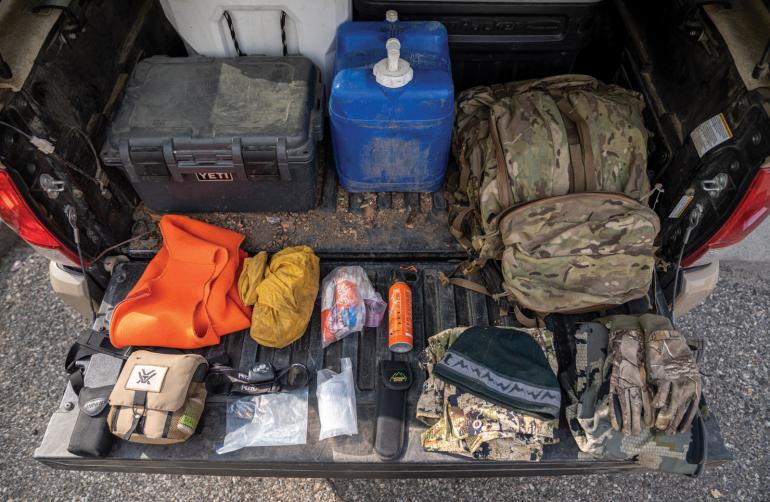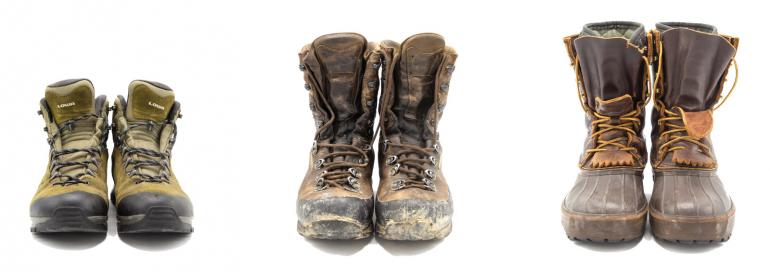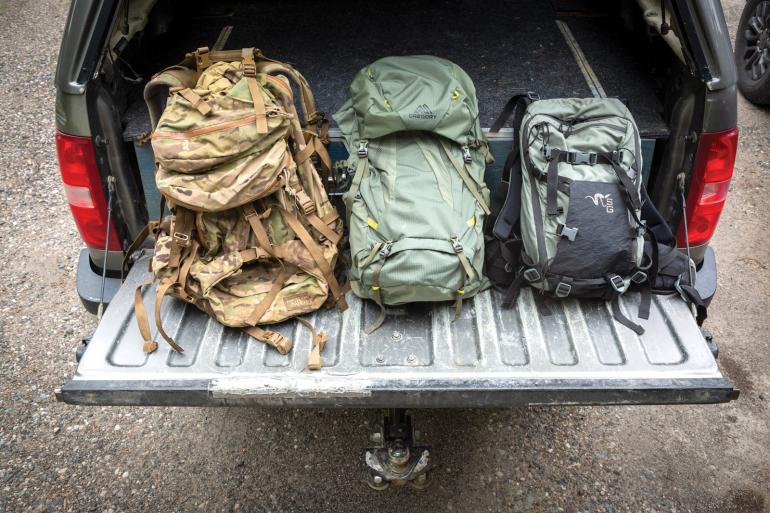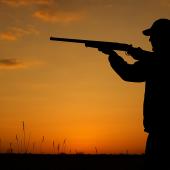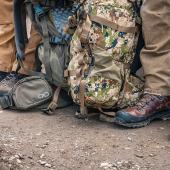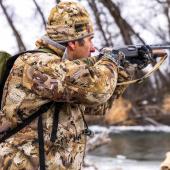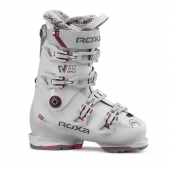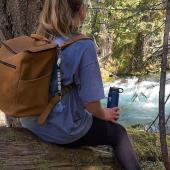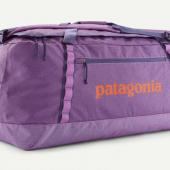Ready for Anything
Gearing up for the hunt.
Every hunter out there has a piece of gear he or she “can’t hunt without.” From cover scents and camo patterns to specific animal calls, many are convinced that the difference between having a successful hunt and ending up with an empty freezer comes down to having the right “stuff.”
New hunters hearing about this myriad of thingamajigs and doohickies can be a bit overwhelmed while trying to equip themselves. However, the fact is that other than a weapon, a good pair of binoculars, and a plucky sense of adventure, there are only a few other things you really need to have both a safe and successful hunting season.
Footwear
Having the right boots can’t be emphasized enough. In fact, it’s the one piece of gear that can be downright dangerous to not get right. You don’t want to cut your trip (or even your life) short because you twisted your ankle climbing a hill or because your feet got wet and started freezing up. Ideally, you want boots that are both light and comfortable while also being rugged and waterproof, all of which help to keep you safely on your feet. A pair of durable yet flexible high-top boots are the best option as they’ll be easy on your feet, while simultaneously helping you conquer both common and extreme terrain challenges.
Field-Dressing Kit
Being able to get your meat out of the woods and into the freezer as efficiently as possible is critical to hunting. Consequently, you’re going to want a quality knife with at least a three-inch blade and a small sharpening stone that will ensure it maintains a razor’s edge. Knives with disposable surgical blades are also a great option. If you’re planning on packing out your game in quarters, it’s a good idea to bring a small, collapsible saw and a few quality game-bags along as well.
First Aid & Survival
You always want to be prepared in case the worst happens. Carrying a good first-aid kit that includes bandages, gauze, disinfectant, and clotting agents, as well as any medications you might need, can sometimes make the difference between life and death in the field. In addition, you’ll want to bring a few other items, including a mylar blanket, extra handwarmers, lighters & matches, some calorie-dense snacks, and a 1,000-lumen or greater headlamp in case you get lost or injured and have to spend the night on the trail.
Layering Up
Weather can change quickly in the mountains. So, no matter how warm or cold it is or how short you think a hunt will be, it’s a good idea to bring a few extra layers of clothing along. A puffy jacket or a wool/fleece sweater is a great insulator and is light and easy to pack. Throw in an extra pair of socks, gloves, and a wool beanie, and you’ll be completely covered when the temperatures start to drop.
Backpack
Having a good backpack is absolutely essential. If you’re hunting close to home or in an area where you can easily drag big-game animals back to your vehicle, then a light canvas daypack with waist and shoulder straps is all you’re going to need. However, if you’re heading into the backcountry or hunting animals like elk that can’t be easily dragged out, you’re going to want a heavier pack with a frame that has at least 2,000 cubic inches of space. The best ones will have plenty of pockets and come with strapping between the pack and frame for carrying meat and antlers and even your rifle or bow, making the hike out infinitely easier.
Odds & Ends
It’s a good idea to bring a few extra zip-lock bags for keeping things dry, such as licenses and fire-making materials. In addition, a good multi-tool, around 40 feet of rope or paracord, and a small roll of duct tape are all great things to carry along. With a few simple items, you can prepare for just about anything the wilderness throws at you while hunting.


